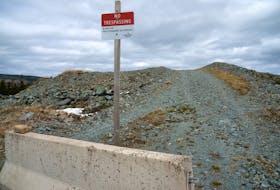In an exclusive interview with The Telegram Wednesday, Poloz said the Bank of Canada doesn’t ignore the smaller pockets of the Canadian economy, but there’s a hard limit on how much impact places like Newfoundland and Labrador can have on national rate-setting decisions.
“Regional diversity is a persistent issue and it means that it’s a big challenge for macro policy makers, because we only have one tool, we can only target the national average, and mechanically the national percentage is only a small percentage Newfoundland and Labrador,” Poloz said.
Poloz gave a speech to the St. John’s Board of Trade closely watched by financial markets in the wake of two rate hikes to the Bank of Canada benchmark interest rate earlier this year.
Broadly speaking, Poloz used his speech to talk about how things have shaken out in the national economy in the wake of the 2014 oil crash, with non-energy exports compensating for the drop in oil revenue.
He said there’s still a lot of uncertainty when it comes to the economic outlook in the coming months, and the Bank of Canada will be cautious and “data dependent” when it comes to further interest rate hikes.
“To be clear, the impact of the shock was still visible in energy intensive areas of the country,” Poloz told the Board of Trade luncheon attendees at the Holiday Inn. “But this was being offset at the macro level by greater strength in other areas.”
Overall, the Canadian economy might be doing well, but the provincial government in Newfoundland and Labrador is forecasting declining real GDP until 2019.
Poloz wouldn’t respond to questions from journalists about the provincial government’s economic stewardship, or the state of the scandal-plagued Muskrat Falls project. Speaking in very broad terms, though, he said he sees cause for optimism in oil-producing parts of Canada.
“What we see already, actually, Alberta has turned and is contributing to growth,” he said. “We’re a little late, a little before that stage (in Newfoundland and Labrador), but there’s lots of positive stories that are emerging, so we just have to be patient for that growth to emerge.”
Poloz said one of the major sources of economic uncertainty right now is the ongoing NAFTA talks, and he alluded to U.S. President Donald Trump’s threat to tear up the free trade agreement.
“Of course, we don’t have anything concrete to analyze, just know it would be a negative shock to the Canadian economy if NAFTA were to be ripped up,” Poloz said.
Poloz said the uncertainty around the ongoing NAFTA negotiations are hurting the economy, though.
“It affects a businessperson’s confidence, or their willingness to invest and so on. We’re heartened that sentiment indicators have actually strengthened quite a bit this year, despite that lingering uncertainty, and it may be that companies have figured, well, the president hasn’t succeeded in doing much so far, so there’s not an imminent danger. They have to give the talks a chance to see how they turn out. Or it could be just by necessity — they’ve hit capacity and they’re in business, they plan to stay in business, so they plan to invest despite that,” Poloz said.
“I think the economy would be even stronger were it not for that uncertainty about what the future of NAFTA might look like. We’re watching it very closely. It matters a lot to companies, therefore it matters to the economy, therefore it matters to us.”








